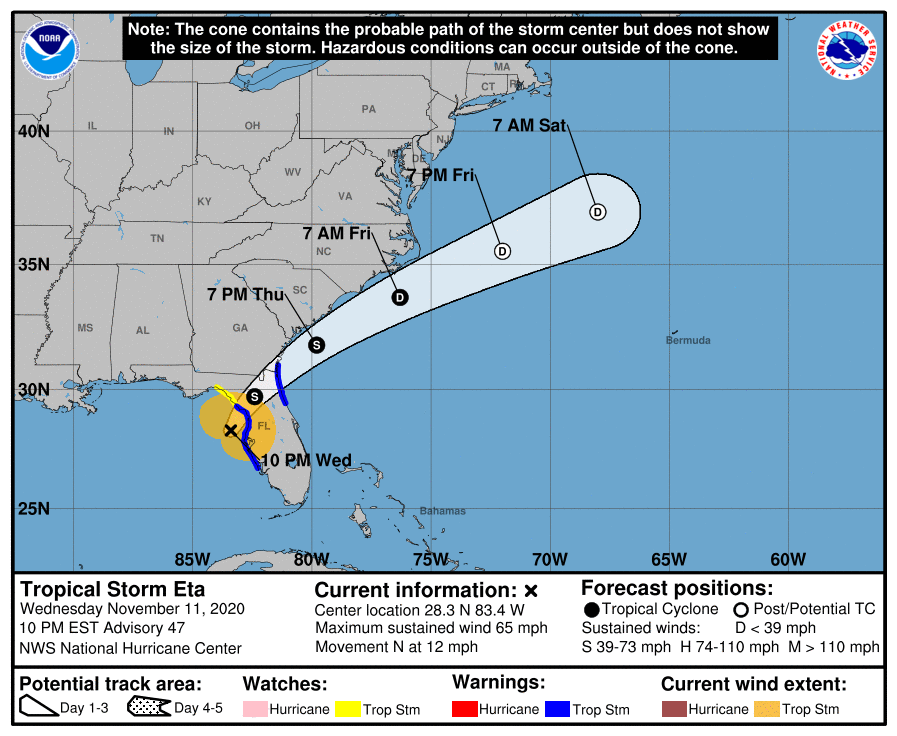
An already challenging year for Florida vegetable farmer Sam Accursio was made worse this week following the impact of Hurricane Eta on his squash crop; hundreds of acres but no production following heavy rainfall and strong winds.
“The heaviest impact is going to be to our squash crop. The beans, they were hanging on the plant and they’re up off the ground, so some of the plants took it hard, but we’re still harvesting there. The squash production for Thanksgiving on my farm, I’m not going to be able to meet the demand. There’s no way possible,” said Accursio, who farms in Homestead, Florida. “But there’s nothing we can do. I’m sick over it. We had a decent day of weather (Tuesday), and Tuesday night it rained an inch and a quarter again. It just won’t leave us alone.”
Excessive Rainfall
He estimated that from the time rain started falling around Saturday or Sunday until Wednesday, it had rained approximately 10 inches.
“Squash don’t like either (wind or rain). They’re a hollow plant. Some of the wind where we planted north and south rows, some of the plants just broke off. The fields that were planted east to west, the rain got them but not the wind as bad. It’s a crazy deal,” Accursio said. “I’m out here right now looking at it. No. 1, the bees are non-existent. I don’t know what they’re doing. The actual squash is melting on the plant. What grades out is nice, but there’s not a lot of them.”
Terrible Timing
It’s never an ideal time for a farmer to experience hurricane-like conditions, but the damage was magnified this week with Thanksgiving just two weeks away.
“This is the second time in my career this has happened prior to Thanksgiving. It’s devastating, because we gear up for volume because the consumers are eating. They’re eating everything I grow; beans and squash. It’s going to hurt our bottom line severely,” Accursio said.
“Everybody’s in the same boat. Some are worse than others. There’s one grower where his farm, it looked completely like a lake. It was devastating. At least mine, in the field that was puddled and every row middle was full but his, you couldn’t see anything green. It was completely like a lake.”
Accursio’s challenging year started last spring amid the coronavirus pandemic. The closures of restaurants combined with so many citizens unemployed left fruits and vegetables not being consumed like they should be. The onslaught of Mexican imports compounded problems.









